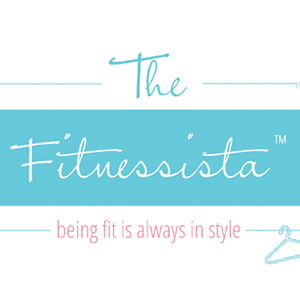Higher Savings for Fit Ones?
Hey everyone! HAPPY FRIDAY! Hope you have fun plans for the weekend 😀
We’re actually heading to Orlando this afternoon to be with family for the weekend. I’m pretty excited to see everyone- my MOM even made the trek from AZ. She hardly ever comes to this side of the world- I can’t wait <3
So remember last week when I stirred the controversy pot by discussing Jillian and her weight loss pills?
*Grabs gigantic blog-sized ladle*
Well it’s time to stir the pot a little again.. I’m really anxious to see what all of you think.

So last night, I got an email from a reader (thank you, M T!) directing me to this article.
In an almond-shell, it says that Whole Foods Markets has announced it will offer steep store discounts to employees with healthier lifestyles and smaller Body Mass Indices.
From the article:
Here’s the deal: Employees who don’t smoke, and also have low blood pressure, low cholesterol, and a low BMI get up to a 30% discount on their purchases. All the slacker employees still get 20% off, and the program is optional; but the whole thing is likely to rub some people the wrong way (much like the uproar over Obesity 101 at Lincoln Univesity). My thoughts: First, Whole Foods is not the first company to go this route, or even the first grocer….
Lower weight, bigger savings??? Come again?

So right now, if I had a Whole Foods less that 3 hours from me, I would be racing down there to become employed and get a sweet discount on all of my favorite goodies.
But on the other hand…
I think of myself 40 lbs heavier and how discouraged I might have felt to learn I wouldn’t get a sweet discount, had I been employed by heaven on earth (aka Whole Foods).
Maybe some of the employees are working there in an effort to be surrounded by new products and ideas and get healthier in the process?
Also, I believe that BMI is a bunch of mumbo jumbo. Don’t get me wrong, blood pressure, cholesterol and not smoking are very important factors, but BMI? BMI says hardly anything about body composition. Muscle weighs more than fat, so a perfectly fit person (with higher muscle density) could actually be considered unhealthy according to the BMI scale.
On one side, it’s a great idea. Why not encourage those who are already fit to keep doing what they’re doing? Since companies pay for health care, and an employee’s health determines the care they need and the amount of money spent, it makes sense that they would do this to reduce health-related costs.
At the same time, why discourage those who need the products the most? Back in the day, I’m pretty sure I wouldn’t be encouraged to purchase the same items for a higher price than some of my peers. What about employees with pre-existing health conditions?
I definitely have a mixed opinion about this…
What do ya’ll think?
I’m off to pack for Orlando <3
See ya soon!
G














Yeah, that’s a tough call. I have a mixed opinion on it as well. One could also argue that those employees with high BMIs may then be motivated to get the extra 10% and lower their BMI.
Another thought I’m having is maybe Whole Foods is encouraging this to have
‘better looking’ employees. Like how Abercrombie, etc. will only hire ‘good looking’ people to draw in customers. It would relect well on a whole food store to have employees with healthy weights. Just a thought.
Wow interesting post Gina, I don’t think it’s a good route for the Whole Food stores to be taking. When I worked for an Irish slimming organisation running weight loss groups, we as staff were constantly monitored with our weight and I believe someone can be within the correct BMI but yet have a very high body fat percentage and may have this fat centred in the abdominal area etc. It put huge pressure on the staff and some staff even resorted to starving themselves for a few days before the weigh in. I think with the emphasis on weight, it takes away from the importance of eating well and fueling the body and making positive lifestyle choices.
On a lighter note, enjoy Orlando, so jealous, wish I was going to the States for the weekend.
That’s very interesting!
I have mixed feelings about this as well. I am all for incentives to be healthy. However, as soon as I read that BMI was a factor in the equation, I thought it was a bad idea. I don’t believe that BMI is a good indicator of a person’s health. An athletic person could have a higher BMI number than a “skinny fat” person who does not necessarily lead a healthy lifestyle.
Hey Gina ~
This is an interesting one. I guess it’s a reward system in a way for the employees who are promoting Whole Foods in the way they’d maybe like to be most associated? Shop here and look this good? I personally think it should be a flat discount for everyone, since we all come from different backgrounds and also some are possibly only just starting their journey as you say. Maybe it will encourage those on a lesser discount to work harder for the 30% off, but I think it will work the other way. I think I would just be mortified if I was one who didn’t qualify and I’d feel ashamed. Not a good message to be giving your staff!
Wow I am kind of mixed on this one too! First off, BMI should not be included in there at all because like you said if someone has more muscle then they could be excluded since it ways more and technically come make this considered “overweight.” I agree with no smoking but ever low cholesterol or blood pressure “erks” me simply because what if someone cannot help it because of medical problems? What if they are trying but they have a pre-existing condition? I think a healthy incentive is good but they need to change around their criteria…start with not smoking and go from there.
I feel like this puts the focus on weight, and not overall health. A person can have a low BMI, and not be at all healthy, and at the same time, someone else can have a high BMI, and be fit as a fiddle. I understand the urge to promote good health, but doing through simply measuring someone’s BMI seems to be a lazy, poorly executed version of an idea that has some merit at its heart.
Interesting! I think it’s sort of silly to be honest…I don’t think it’s bad or anything, I just think it’s kind of ridiculous and more about PR than anything. I think it’s a great idea to encourage healthy employees, but I think maybe a store discount isn’t exactly the right motivation.
BUT, I don’t agree that BMI is totally useless. I think that for the majority of the population, it’s effective and accurate. People get super defensive and say that you can be “overweight” on the BMI scale but really it’s because of muscle, and I totally disagree with that unless we’re talking professional athletes. The average person, even someone who works out regularly, is not going to have crazy amounts of muscle mass. And I highly doubt that someone is going to be pushed into the obese BMI category just based on muscle. It’s sort of far fetched and I think a lot of people use it as an excuse. You can be in awesome shape, happy, and physically fit – but that doesn’t mean the BMI scale is a lie. It just means you don’t necessarily agree with your personal result.
Oooh that’s a tough one. I don’t think it’s fair. That’s basically telling people it’s okay to discriminate against larger people.
I agree with the concept of being rewarded for making healthy choices….and the gold, silver, bronze levels give employees something to work towards. I really like the No smoking, good cholesterol & good B/P, BUT….I dont think BMI should be a factor. BMI is not always an accurate measure of true health. How about adding resting pulse at low average or high oxygen saturation instead….they are better indicators of health accross the weight spectrum.
To me, it’s pretty clear that it’s a bad idea (at least the way they’re doing it).
First, people come in all shapes and sizes, and “healthy” means something different to everyone. Also, I personally have a friend who BMI-wise is considered obese, but he’s a weight-lifting competitor who is all muscle.
Secondly, I think it’s prejudiced and unfair.
Oooh interesting. Thanks for the link to the article, I hadn’t seen it yet!
Ultimately, I’m torn. Initially I was in support. I feel like I have heard before of obese employees at various companies getting discounted gym memberships and other free/ cheap assistance to lose weight and get healthy. In those situations, I’ve always thought, “what about for those who are already physical fit? They have to pay full price because they’re not obese?” (I wish I had an article to link to but it was AGES ago that I read that).
But at the same time, if I were a Whole Foods employee I would be frustrated by this. I am a very healthy individual. I’m a vegan, I workout regularly, 2/3 of my job is spent on my feet and moving the whole time, etc. Unfortunately due to a medication (yayyy birth control…not) I gained 45 lbs in a rather short time frame, and despite going off the pill I am having the hardest time losing that weight, since I was doing so much to be healthy already. It’s just going to take a long time to get my body back to a balanced “normal” weight, and if an employer like WF had come out with that news while I was working there, ultimately I’d feel discouraged and pissed off. (Especially since I just got blood work results back and I’m definitely in tip-top health shape).
Thanks for the thought-provoking post. 🙂
I think this is a great idea. Whole Foods is basically passing the money they are saving on your health-care to you. It encourages healthy living. In my opinion all companies that offer health care should offer increased benefits package. Using BMI may not be the best method. The discount that WH offers to employees is already 20% and that is better than somebody working at Walmart could say.
I understand what they’re trying to do, but I really don’t like this kind of thing. If anything, why not give the greater discount to those who need to improve their health a little more? Or take the money that they’re losing by offering a greater discount and spend it on programs to educate their employees on healthier living in general. As a person who has been overweight much of my life, I know that offering rewards to people in an effort to make them lose weight really doesn’t work. I know I would probably just feel even worse about my weight if my employer measured it and pointed out just how out of shape I was. Then, I’d get discouraged and go home to a nice big pizza. 😐
I agree with the comments that say this puts too much focus on “weight” instead of healthy lifestyle. I would think that the type of person who works at whole foods probably isn’t eating at McDonalds during every meal anyway. I don’t think I’ve ever seen an employee there that looks overweight or unhealthy.
I understand why they’re doing it, because of their healthy image, but it reminds me a lot of that Abercrombie and Fitch ordeal… which disgusts me.
Since it’s Whole Foods, and the overall consensus is it’s a health-food store, I think part of it’s a good incentive for its employees.
Except for the BMI par. For the most part, I hate BMI! It’s so relative. You could have someone who is an athelete – let’s say an olympic athlete, or someone who has SO much muscle mass that it puts them “overweight” yet they are completely healthy. Then you could have someone who’s “skinnyfat” who doesn’t exercise a lick.
I agree with having mixed feelings. It may discourage alot of people. Don’t we all need access to clean, healthy, organic food. Isn’t it part of the problem that people buy “junk” to eat becasue it is cheaper? We all need access and we should get it…..Hmmmmm maybe I do not have mixed feelings on the subject!
interesting article!
I agree and disagree at the same time. I think BMI sucks, because some people just naturally will never become a skinny mini. Not every body is meant be super thin. Plus, people with greater muscle mass, etc will have a higher BMI. that’s not fair.
Eating right and exercising will likely impact your cholesterol and blood pressure levels..but what about people who are genetically pre-disposed to this stuff?
I agree wholeheartedly that healthier employees should get a benefit in some way… BUT I’m also a firm believer in the fact that BMI is a load of crap. BMI doesn’t take muscle mass into account, so the most unhealthy skinny person would get the discount, whereas someone who’s healthy but heavier wouldn’t?
I’ve read a lot of rants about this on various blogs this week. And I just can’t get as worked up as some. I read one comment that equated this policy with the Jim Crow laws of the old South!
I work at WFM, happen qualify for the highest level of discount (thanks to my recent 50 lb weight loss) and I do think that BMI is too narrow. At the same time, I fail to see how this is discrimination, especially when it was made clear to us that special cases (body-builders, unnaturally dense people) will be given special consideration.
I just don’t think that those that don’t qualify should be offended. If they work for WFM, they still retain their free healthcare plan (no co-pay or premiums), 20% discount, discounted gym rate and eligibility for all the other give-aways and contests that come up during each retail period.
And, as my BF pointed out, employees can be offended by anything. WFM ran a program that rewarded those that bike to work or formed a carpool. Does that discriminate against those that have phobias of bikes or are morally opposed to carpools? Was the canned food drive at Thanksgiving offensive to those that hate donating food to the homeless?
I just think you have to start somewhere with these types of sweeping policies and go from there. There will be complaints and there will be revisions. Just don’t take the new perks away from people like me, who work hard to maintain their healthy lifestyle.
Thanks for letting me vent. 🙂
I don’t know what WFM you work for, but the health insurance is no longer free. Cheap, but not free. No co-pays does not = no out of pocket costs.
Tough call…can’t really judge. But BMI is a load of BS. It puts me overweight.
I wholeheartedly support healthy lifestyle and healthy eating. However, healthy food is expensive! The obesity epidemic is at least partially fueled by the fact that it is often not financially possible to feed a family healthy and organic food. If budgets are tight, cheap processed food is often the only option. Not providing a discount to overweight employees essentially widens this disparity!! Not the best idea in my opinion!
hmm.. this is a very fine line. We have something similar at my place of employement, but it goes much further. Each year we have Health Assessments where a company comes in & gathers everyone’s info.. weight, height, BMI, fat %, blood pressure, cholesterol, glucose, if you are a smoker or not & the list goes on. From there, you get points based on your score… the *healthier* you are, the more points you get. Then if you obtain the designated minimum points, your insurance deductible is cut in half. We also get a cash payout based on the number of points you have. Again, the higher the points you get, the more money you get.
I can understand the concept of what my company & Whole Foods is trying to accomplish. But is it really the best way to encourage healthy living? I’m not so sure.
It does put a lot of pressure on employees and can be discouraging/embarrassing when you aren’t exactly where they say you should be. It also leads to cheating.. we have people who quit smoking a few days before the assessment and end up getting fantastic scores.. hello, you’re lying to yourself and the system!! Same with people trying to lose tons of weight right before the assessment. That’s healthy?!
Things like this can be great to open some peoples eyes about getting healthier. But I just think companies should stay out of the *numbers* side of things and encourage employees in other ways. Find a middle ground & let everyone reap the rewards to getting healthier.
I think it’s an awesome idea, the point obviously being to give incentive for healthy people to stay healthy and fit and for the not so fortunate/motivated to get that way! Companies have little internal ‘competitions’ like electing employees of the month and things like that, so how is this any different? It’ll be a driver for everyone to move towards health.
Also, I’m wondering how strict they are going to be about all this. Obviously BMI often doesn’t account for muscle mass (in proportion to your height) and things like that, but I think managers (or whoever) will obviously be able to tell if you are fit/healthy even if ‘your BMI doesn’t say so’. Also, I think they will probably see be more understanding/motivating to an unhealthy employee trying to get healthy/one who is losing weight. Knowing WF, I can imagine them still giving the benefits to those who are making visible progress.
Lastly, on the issue of ‘pre-existing conditions’, I’ve seen, known and heard too much about people with a history of Type 2 Diabetes or obesity (one of my best friends), or heart problems (my dad), who COMPLETELY curbed those problems by a healthy vegan and/or raw diet… so even there, you can be an employee with one of those conditions and still defeat it!
It’s a win-win scenario if you ask me!
I agree with you. I think in theory it is a good idea in that they are trying to encourage people to be healthier. BUT your BMI number can be completely not accurate in determining your health. If you take someone who might be really thin but eats junk and doesn’t exercise, they may have a lower BMI than an athlete who is extremely healthy and has a lot of muscle. That’s not exactly a good comparison.
They’re doing this, like many other companies, for their bottom line. They wanna save money on their health insurance costs. Healthier younger employees means they will need less surgery, medication, etc etc. All good things. However, Whole Foods, although they offer wonderful products, is a notoriously bad corporation. They’re anti-union and capitalize on the organic and healthy living movement to jack up prices. This is the icing on the cake.
Most companies offer these “healthy living incentives” to give folks cheaper health insurance premiums. It’s sick that Whole Foods is using it to get a discount on THEIR products. Products that are already way above wholesale.
I don’t like this at all. Reading a lot of the opinions that BMI is a horrible way to determine who is fit, though… how else are they going to measure it in a mass way? I mean, they can’t have one person individually analyze each employee’s diet, activity level, measurements, etc., and I think a lot of people would argue that fitness and healthiness can vary by each individual.
I think a lot of negative stuff could happen from it – unhealthy methods to get to a “healthy” BMI leading to unhealthy emotional/mental state, and what this kind of stuff leads to (discounted health insurance for “healthy” people could really promote discussion ;)). And what you brought up about people with pre-existing conditions. Too bad for them!
Hey Gina!
It’s a double-edged sword with two sides: one appealing and one that makes you go…REALLY?!
I totally agree with you about BMI. Someone could be perfectly healthy at a “less-than-normal” or “higher-than-normal” weight. It’s a recipe for disaster because it allows people to become so obsessed and consumed with reaching an ideal instead of listening to their body’s person rhythms. Something the both of us are SO not about!
It’s nice that Whole Foods wants to encourage healthy habits but what about the people who are unhealthy and don’t know where to begin? This is pure exclusion and goes along with society’s notion that “overweight” people are not worthy. Another recipe for disaster.
A better idea would be to give the 30% off to employees by implementing group employee trips to a local gym for exercise classes (zumba anyone?!) or to a local mountain for a long hike 3-4 times a month. Committing to that would encourage healthy-and-happy lifestyles! What do you think?
SORRY FOR MY RANT!!!
Love,
Heather
I really don’t think BMI is an accurate measure of healthy weight for a lot of people. So it just doesn’t make sense to me!!
I have to say, I like the idea of corporations offering incentives for their employees to be healthy. I don’t think it is discouraging to those who are not…in fact, I think it is representative of the actual benefits of healthy living. For instance, someone who is active, eats nutritiously, and makes a good effort to be in the healthiest state possible WILL benefit in life…lower insurance costs, fewer medications, fewer doctor/hospital visits… all of those add up to significant savings. Sadly, it doesn’t seem like the majority of society recognizes these benefits, do not take care of themselves physically, and end up paying much more for it later in life. The Whole Foods policy is simply a smaller representation of those bigger lifelong savings, and I think small lessons like these will help those that need some encouragement to live a healthier lifestyle benefit in the short term, rather than focus on the long-term benefits, which I think go largely ignored.
HOWEVER, I do agree that BMI is a poor way to measure health. I like the non-smoking and low blood-pressure aspects, and think that other measures like that (cholesterol levels, for example) are more accurate ways to analyze overall health. The company could also create opportunities for healthy living and thus qualifying for the higher discount, such as participation in employee walking/exercise groups, 5k teams, or other efforts, like physical charity work (community gardening, picking up trash, etc.).
I’m torn but I think WF really wants to do something good here. They’re not trying to offend their employees. BMI is much too narrow of a calculation. I definitely think there are other factors that come into play when regarding whether someone is healthy or not. Hopefully they finagle the program to include some other factors.
i definitely have mixed feelings on this too. i can see the incentive to get healthier to take advantage but it could definitely be a discouragement too. i’d like to see whole foods promote a healthier lifestyle by being pro-active and encouraging people to participate in biking events or run/walk events. it’s all too easy just to make an edict based on a semi-meaningless number and then leave it up to the people to come up with solutions.
Wholefoods is being naughty!!! I think I’m mostly appalled! There’s a better way to encourage wellness than ostercising those who are still on their wellness journey!!! That’s the opposite if what a place like wholefoods should be doing!!!
Plus, BMI?!?!? That’s nuts!!!! My incredibly fit trainer in Victoria is morbidly obese according to his BMI! Hooey!!!!
I think this one got my blood boiling a little!!!! ?
i can’t imagine the higher ups in Whole Foods really thinks this is a good idea, can you imagine sitting in a meeting and someone brings this up and these so called educated people making this decision. there are a few reasons why it might be a good idea but so many reasons WHY IT’s NOT
BMI is a total crap shoot – my boss who is one of the fittest adventure sport persons has alot of muscle – but because he is short, he is obese by BMI standards – the dude doesn’t have a pound of fat on him probably!
Wow. Yea, at first I think “cool!” but then, I realize that I have a higher BMI. I’m not in the normal range even though I eat healthy, run 4x/week plus lift weights. I think a better solution might be to have employees participate in a get-healthy plan. Meet once or twice a week to discuss diets, exercises, etc OR meet for exercises. Then everyone could get the benefit. If they fulfill that then they should get the discount.
Thanks for pointing this out.
I commend them for wanting people to lead a healthier lifestyle, but I think they’re going about it the wrong way. I agree with you, BMI is not accurate a lot of the time. Can really muscular people not get a discount?!
What if you’re one of those people who was born with naturally high cholesterol? It just doesn’t seem fair.
There’s nothing wrong with encouraging healthy employees. Those employees who are looking to become healthier individuals will essentially be their best customers anyway. Its a rewards program designed for employees. So, instead of being a “member” of a discount program, you’re an employee, and you reap the benefits. Any other employee who does not wish to participate still get a 20% discount anyway. Where’s the beef? You want to buy good food to become healthier? No? Why would anyone be discouraged? Discouraged from what? If you want to smoke – sure! Why not? You weigh it out — is smoking better than “up to 30%” discounted on your groceries? The real issue is determining who is considered “healthy” and who isn’t eligible. BP and cholesterol could be genetic – BMI could be inaccurate also. And just like I hid my Marlboro’s from my daddy as a teenager, and employee could do that as well. There are laws protecting medical records, you’ld have to be willing to provide that to your employer too? I think not. There’s more to it, and its in the details.
Weird thinking what people come up with. Yeah, they should do some type of rewards program w/ the more you buy there the bigger discount or something to encourage everyone to buy/eat healthy. Have a good safe trip; enjoy the family!
I’m all for the incentive except for the BMI part. I’m 5 feet and weigh between 118 – 120 lbs. I’m borderline overweight according to the BMI but I’m not overweight. I’m sure there are WF employees like me.
My company has done something similar in that they give us an annual exam (both online questionnaire and in person assessment) and give health care cost discounts to the fit employees. However, there are many different aspects to their questioning. It includes weight, but that is just 1/100 of the exam. The rest is behavior, blood pressure, and even family health history. So, I think it’s possible that WF might not put as much emphasis on the BMI as listed here. If you meet other healthy criteria but have a slightly larger BMI I would think they would still give you the discount. Not familiar with the program itself, but I would not have a problem with it if that was the case.
Secondly, the way group insurance works is they average out the cost per person, so basically the healthier group bears the cost to the unhealthier half. This I think it not fair, and anything that can help equalize the difference is a positive change.
Despite all this, I highly doubt that very many whole foods employees will not meet the program guidelines! They are all so healthy/fit.
‘the path to hell is paved with good intentions.’
That’s the really only positive thing I can think of when I read this. Obviously Whole Foods meant well, but how can you help people lose weight when you make them feel like freaks or losers? I have never believed that people can lose weight from shaming tactics or negativity. When people who are overweight are made to feel more embarrassed about their weight, I think they are more likely to emotionally eat which can only hurt their progress. As someone who has struggled with weight, I have always been more encouraged to eat healthier or workout more when I hear people say things like : ‘wow, you look great. you can really tell you’ve been working out.’ Healthy people lead better by example and by doing things like inviting someone to go on a run, take a class, or go on a hike with them.
Finally, I agree with you and other commenters that BMI is RIDICULOUS. I know so many people who are labeled as obese by BMI standards who are very fit.
although BMI is a ridiculous measurement, the plain and simple fact is that (ON AVERAGE) people with a healthy BMI and an active lifestyle do not cost insurance companies (and thus Whole Foods, who is buying said insurance policies) as much money. so, i totally understand why Whole Foods is doing this. It might not be “fair” but it makes sense.
WTF?! I am totally appalled…I didnt even think that was legal! Especially if people with a higher BMI are trying to become healthier and buy WF products, its a bit counterproductive.
I have no problem with it… The “standard” discount is 20%. This is essentially a healthy living incentive program. Lots of employers seem to be offering things like this. It may not be discounts or perks, but there is some sort of reward.
The only problem I DO have is that are certain people that can’t really lose the weight. My cousin has a thyroid problem and is just big, she can’t help it (although I think a Vegan diet might heal her). I think there should be some stipulations added in for people with underlying health conditions.
But overall, I’m for it.
My brother works there and we were debating this over Christmas. So many different sides to the story!
we talked about this in my business class in the context of health care and overall i ithink it’s an AWFUL idea. the reason companies do it is to SAVE MONEY because if employees are ‘healthier’ they can take out less insurance. i believe companies should offer gym memberships or healthy nutrition classes etc. but this type of incentive has lots of negative implications! some people have genes preventing them from being a certain weight and others have vices that involve shopping or gambling but not vices regarding food so i think it’s complicated. i also think this will create a lot of prejudice and unfair hiring processes. for example, if you’re interviewing for a job there and you’re competing against an overly thin and fit person who may be totally unqualified compared to you, the company (such as whole foods)will use appearance or fitness as a way to discrminate and hire! totally unfair
I agree about the BMI component not being the best – maybe they should use waist measurement instead? (healthy being waist less then half of height). Other than that, I have no mixed feelings about this. I would if the “healthy” employees got 30% and the others nothing. But a 10% delta is a good incentive and I see that Whole Foods is doing something to try and counter a huge health issue facing the US. Kudos to them! Employees who take advantage of this program will get something better than another 10% discount: healthier lives, lower healthcare costs, and pride in their accomplishments. If only all corporations were willing to help provide incentives for this…every bit helps!!
For the most part- I understand why they are doing it. Partially to promote healthy living and partially to hold up their “health food store” status with what looks like “healthy employees”. However, I agree with a majority of people who have posted that the BMI bit is a bunch of bull. Unfortunately, its an antiquated way of determining “health” and honestly, it is flawed. As already stated, one can have a normal BMI and not be healthy, and vice versa. So, while I get what they are doing, they might need to re think how they approach it.
This brings up another topic of, why is everyone (government, doctors, etc) so hung up on BMI, when it is apparent to anyone who is aware of what it actually is measuring…its really unfortunate that there hasn’t been a better system developed to determine health. We are dealing with obesity at epidemic levels in this country, but BMI is a useless tool that really does not determine true health. Why not body fat percentage? Why not lifestyle? It’s amazing to me that people who are considered experts on the topic, still stick with BMI when they know it is not useful whatsoever…
I’m going to say something probably unpopular – Whole Foods is a private company and can therefore make its own rules, so this isn’t wrong. It’s not breaking any EEO codes, nothing illegal going on. (Potentially as stupid as the iPad, but not wrong.) I think that encouraging employees to get in shape with deeper discount incentives isn’t a bad idea. But I think using BMI as a factor IS, and there needs to be some kind of exception for employees with PECs, are pregnant, etc. I don’t think it’s a PR attempt to have good looking employees, but even if it is, again, their prerogative. And call me cynical, but I appreciate people working in a health food store to be, well, healthy.
On the flip side, there are probably people employed at WF who are there because it’s a job they can do and get paid for and in this economy, good for them. Should they be punished with a lower discount than their perhaps more enthusiastic peers?